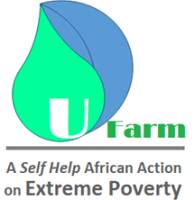 The answer to extreme poverty in Africa could be Africa itself, if a new agricultural initiative lives up to its vision. The Uganda Community Farm (UCF) aims to create a prototype for self-sustainability within Uganda’s poor rural communities. Pursuing a comprehensive agricultural program, it intends to set a precedent for Africa’s rural poor to tread their own path out of hunger and extreme poverty.
The answer to extreme poverty in Africa could be Africa itself, if a new agricultural initiative lives up to its vision. The Uganda Community Farm (UCF) aims to create a prototype for self-sustainability within Uganda’s poor rural communities. Pursuing a comprehensive agricultural program, it intends to set a precedent for Africa’s rural poor to tread their own path out of hunger and extreme poverty.
Organic Perspectives, the Ugandan non-profit organization behind the project, has already worked with more than 2,000 small rural farmers from Kamuli and Buyende since 2007. The Uganda Community Farm anticipates reaching at least half of the 150,000 households in both Kamuli and Buyende in our first two to four years of operation, and to ultimately scale across Eastern Uganda thereafter.
Organic Perspectives most recently joined hands with celebrity chef Cat Cora’s charity “Chefs for Humanity” on a $250K crowd funding appeal for the Uganda Community Farm. The farm plans to train local farmers on organic horticulture systems that have faster/high returns, and to help the farmer’s access stable and collaborative organic marketing channels – particularly through collective marketing and an approach of Community Supported Agriculture.
UCF Founder Anthony Kalulu explains, “By providing smallholder farmers with a practical organic farming learning centre, based on low-input, sustainable practices, we can provide these communities with the ability to feed themselves, rather than relying on short-term relief programs. What’s more, UCF shall have an organic farming practice section (a Hectare or two) entirely managed by the farmers trained here—with all sales from the section supporting local projects of the community’s own choice. The farm also hopes to become a resource center for scaling Organic Perspectives’ current conservation activities in Uganda’s deforested countryside—in a financially self sustaining manner.”
The plan is to acquire approximately 40Hectares of land on the shores of Lake Kyoga, in the Kamuli or Buyende regions, and to assemble the necessary tools and materials to establish the program. “We have a number of ‘perks’ to offer donors and supporters,” says Anthony, “including reciprocal gifts of fresh vegetables and fuel efficient woodstoves that will be given to local households in turn for your support! But it’s not just the funding that we need,” Anthony says. “We welcome both short and long-term visitors to the farm itself, to share with us their farming experiences and insights, and to help us develop the whole project’s working framework and long-term strategy.”
